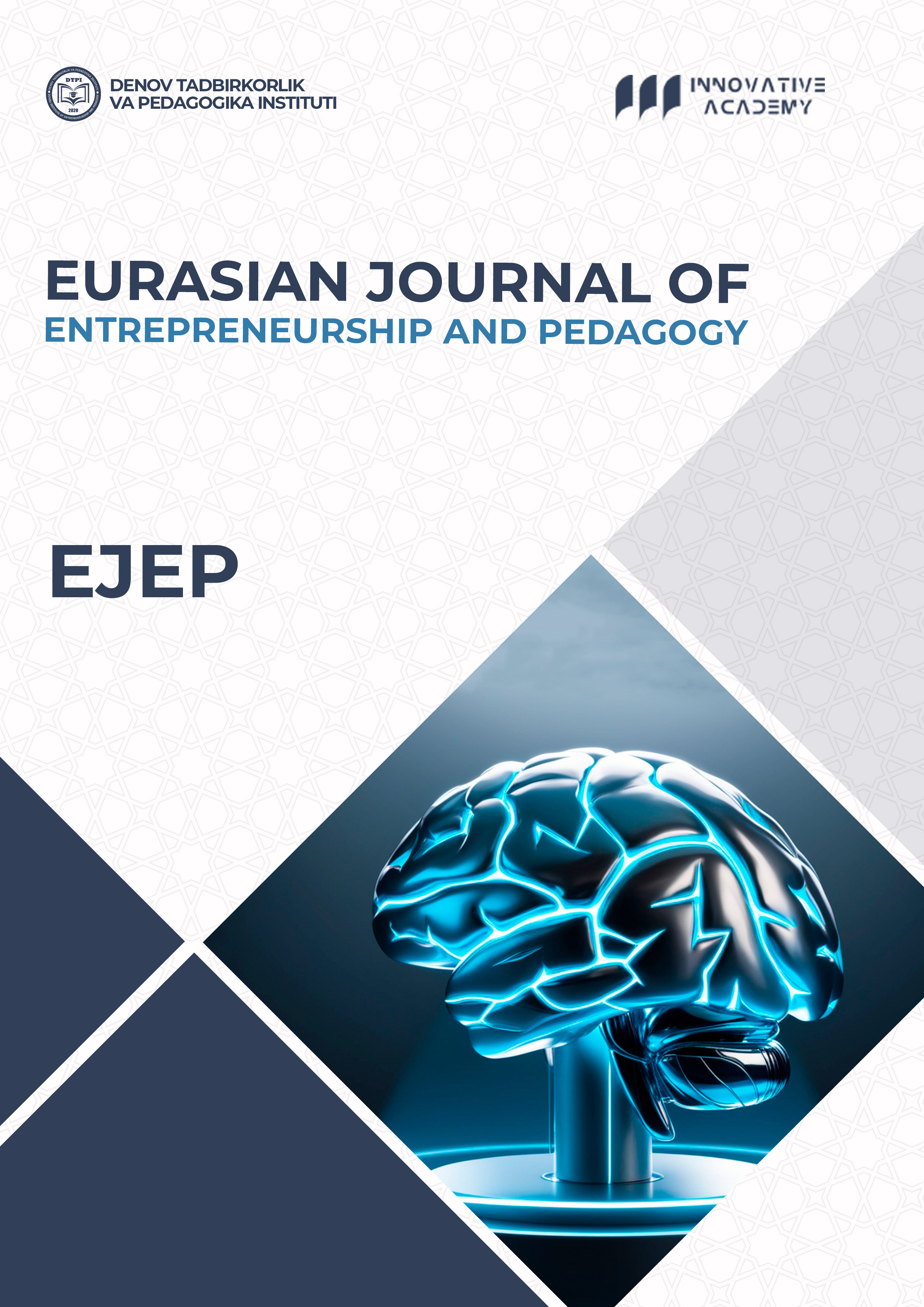
Текущий выпуск
Том 3 № 3 (2025): Евразийский журнал предпринимательства и педагогики
Новый журнал разработанный совместно с Денауским институтом предпринимательства и педагогики "Евразийский журнал предпринимательства и педагогики" - это рецензируемый международный журнал с открытым доступом, в котором публикуются оригинальные исследования и обзорные статьи, относящиеся к различным областям. Основная цель состоит в том, чтобы предложить интеллектуальную платформу для международных ученых, и она направлена на продвижение междисциплинарных исследований в прикладных науках. Все рукописи должны быть подготовлены на узбекском, казахском, таджикском, английском или русском языках и пройти тщательный процесс рецензирования.
Опубликован: 2025-12-04

